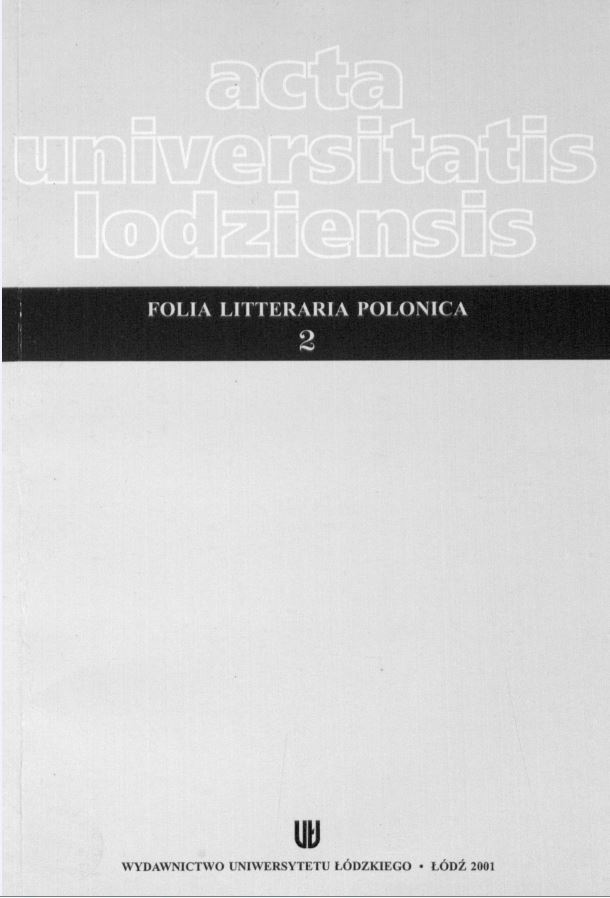Mirona Białoszewskiego "czekanie w powietrzu"
DOI:
https://doi.org/10.18778/1505-9057.02.09Abstrakt
The aim of the article is to draw attention to an important, though frequently left out, aspect of Miron Białoszewski’s works, namely their spiritual quality. The expression duch (the spirit), dech – tchu (the spirit of breath) and oddech – oddychać (a breath - breathe) frequently or, at least, sporadically appear in the works by the Warsaw poet. After checking the contexts of those words, it turned out that they could be associated with the term spirit found in the Old Testament. A more detailed analysis consists of the following components: 1) the gale, which “lata nad mostami / nad wodami z odnogami (“ blows / over bridges / waters with arms”), like in the first words of the Book of Genesis, 2) breath - being the essence of existence, 3) the spirit of a man - God’s breath; Białoszewski is faithful to Hebraic tradition, which using the word basar, does not differentiate between the body and the soul but considers them a whole (Christian tradition, by contrast, does not know this sort of unity); 4) the spirits in a man.
In Miron Bialoszewski’s works air is often the centre of space vibrations, the breath of the universe. Besides, the poet himself stands on the borderland between this and that worlds. The fact that the author of Obroty rzeczy (The Motions of Things) refers to the revelations of Erich von Däniken in this context may be considered a joke or an attempt to mislead the reader.
Pobrania
Pobrania
Opublikowane
Jak cytować
Numer
Dział
Licencja

Utwór dostępny jest na licencji Creative Commons Uznanie autorstwa – Użycie niekomercyjne – Bez utworów zależnych 4.0 Międzynarodowe.











